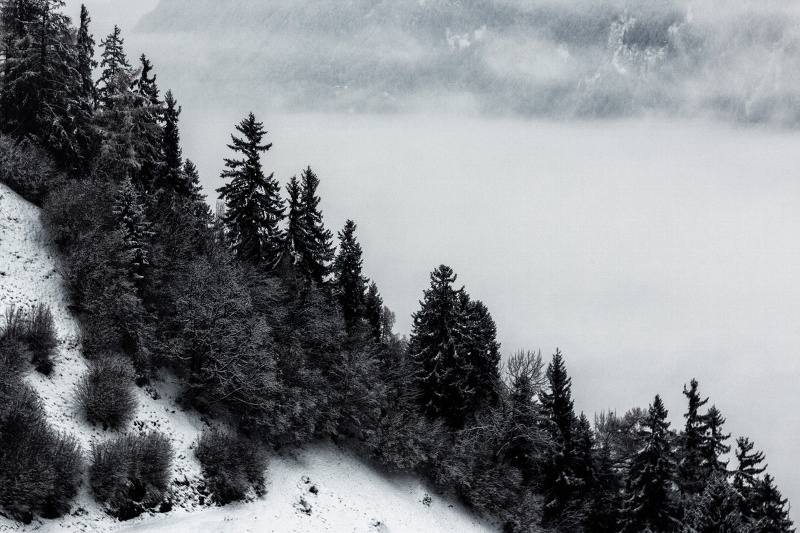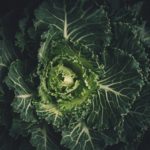Just as the water surface reflects light and shadows, our everyday life is an arena of a bitter-sweet conflict between excitement and disappointment. In her bleak poem, Crossing the water, Sylvia Plath (1932-1963) uses symbols to depict shades of our existence, whose contradictory nature is highlighted in tension with the outer world.
波立ち光を揺らめかせる水面のように、私たちの日々には明暗が交差します。暗く寂寞としたイメージを漂わせるシルヴィア・プラスのこの詩は、私たちを取り巻く世界との緊張関係の中で浮かび上がる明暗を、象徴的に描いています。
The apparent imagery here is a herd of dark trees casting shadows over the lake water. The trees are personified in the shape of cut-paper people; human beings lose their presence in the shadowy, tenebrous natural surroundings. Lights flicker in the darkened world. There should be hope. We try to move on. But obstacles come over just as the thick leaves on the water keep us from moving forward. A little glimmer of hope seems liberating but such anticipation pushes us down the emotional descent in the shape of a disappointment. Frequent disappointments discourage us from moving forward physically and emotionally.
この詩が呼び覚ますイメージは、湖水に影を落とす黒い大木たち。木々は一様な切り紙のようでもあり、人のような存在感を放つ。人は、自然の陰影の中で、存在が希薄にもなる。そんな暗い世界に明滅する仄かな光。しかし、水面にひしめく葉が、行く手を阻む。先にあるはずの希望を目指す中で、いくつもの困難に見舞われる。微かな希望に胸躍らせたりもしますが、そんな淡い期待こそが暗き失望の発端ともなる。そして、失望の多い暮らしの中で、心も身体も身動きが取れなくなってくる。
It sounds pretty encouraging when people say that whatever you do each moment definitely creates its ripple effect on what surrounds you and that’s the way you make a difference in the world. But deep down there is some space in our hearts, where stagnant memories and emotions devour our optimism. We sometimes get stunned and overwhelmed by the enormity of darkness within us and others.
世界に投げかける一挙手一投足が、波紋となって自分の周囲へ広がる。しかし、自分の心の中の澱みは、変わることなく、心を沈ませる。覗き込みたくない影が心の中にはあり、また誰の心にも見出すものでもある。そんな自分自身や周囲に見出す暗さに、不意打ちを食らったように、一瞬身動きできなくなる。
Sylvia Plath is often associated with a tragic end of her life and the bleak tone throughout her works. But as we can find in this poem, she captures shades of our emotions. Our troubled hearts are vulnerable but real. Our daily emotional challenges are made up of something more than a fit of desperatipon. It’s in the silence that we touch our innermost emotion. The darkness and silence arouses thoughts, regrets and frustrations that are kept and stored in our mental “Lost and Found”.
シルヴィア・プラス自身は、彼女自身の暗い作品世界や悲劇的な最後の印象とともに語られることも少なくないのですが、この詩にあるように、人の心の揺れや明暗を素直に見て取ったとも言えるでしょう。誰もがざわつく心を胸に生きているわけですが、それは悲嘆に暮れたり、怒りに任せたりといった仰々しいものでは決してなく、もっと静謐なものでもあったりするのです。暗く静かな刺激の少ない世界でこそ心に浮かぶ思いや迷い、それが心の「遺失物保管所」にあるものとも言えるのです。
Crossing the Water
Black lake, black boat, two black, cut-paper people.
Where do the black trees go that drink here?
Their shadows must cover Canada.A little light is filtering from the water flowers.
Their leaves do not wish us to hurry:
They are round and flat and full of dark advice.Cold worlds shake from the oar.
The spirit of blackness is in us, it is in the fishes.
A snag is lifting a valedictory, pale hand;Stars open among the lilies.
Are you not blinded by such expressionless sirens?
This is the silence of astounded souls.
湖水を渡る
黒い湖水、黒いボート、黒い二人の切り紙人形
ここで水を飲む黒い木立はどこへ行くのだろう
その影はカナダさえ覆うだろう水花から洩れる 微かな光
葉が止どめるのは 私たちの焦り
暗き忠言が 柔らかなその葉のひとつひとつに寒々とした世界が いくつにもなって オールに揺れる
闇黒の精霊が 私たちの中に 魚たちの中に 生きている
立ち枯れた木が 告別の淡き手を 振り上げている百合のあいだに 星々が
無表情な水の精に 目を眩ませられていないか
驚愕した魂 そのしじま








